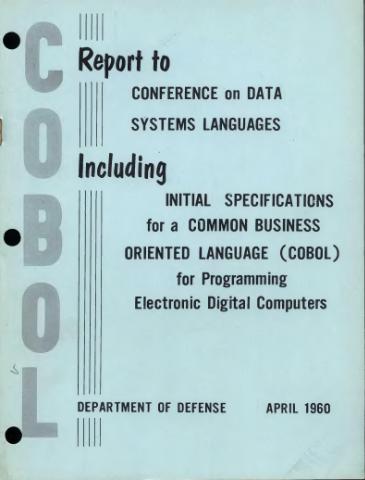Common businesses-oriented language (COBOL) is an old programming language. First invented in 1959 most people my age have probably never heard of it. I first came into contact with it at my work at Mercedes-Benz Sweden. Some business programmes were still running on IBM mainframes utilizing COBOL to execute and perform their transactions. Not once had I ever heard it mentioned during university.
However, according to IBM, programmes that are written in COBOL handles up to 3 Trillion USD worth of transactions every day. These programmes run primarily in banking and insurance sector applications. These facts baffled me.
COBOL programmers are aging out
At one point I worked with a guy who was an expert in COBOL and z/os, and especially one of the applications which we used at Mercedes. However, he was retired and was only hired part time as a consultant. I had a pretty strong hunch that he was a desired asset and that his rate was pretty high.
During the COVID-19 pandemic, several US states experienced a shortage of COBOL programmers, which meant that modernization efforts had to be put on hold [1]. According to [2], the interest in COBOL programmers have been rising during the last couple of years, due to the fact that the previous generation of COBOL programmers are aging out.
z/os – IBM’s specialised Operating System
z/os seems super weird. However, it has some very strong strengths. It is purpose built to run COBOL code and execute business transactions. Windows and Linux are “general” operating systems, that can be configured and used to do anything. Windows especially suffers from this. Unix-based operating systems can of course be specialised to specific tasks. This makes transactions super fast and reliable and, I guess, easier to administer and manage.
Mainframes
According to IBM, 45 of the top 50 banks, 4 of 5 airlines and 7 out of the 7 top global retailers use mainframes as a part of their core technology. Five years ago I had heard the word “mainframe” but I thought it was only legacy hardware that all companies was trying to get rid of. Even if they are trying to get rid of it, it seems to be so deeply embedded that they cannot. Or it would take an immense amount of work.
z/os, COBOL & Cyber Security
My aim is not to become the greatest COBOL programmer of all time, nor to become a master z/os administrator. However, by learning the basics and combining it with Cyber Security and knowledge of more modern technologies would be a valuable skill set.
The financial sector face especially strict regulations when it comes to handling transactions and user data, and are also a high value target for hackers. Therefore, I think that specific combination of skills would be super valuable.
The path
To learn these technologies I have started following the “Open Mainframe Project” course by IBM. I have recently completed the first few chapters and I am excited to share any other thoughts I might have down the line.
Thank you for reading,
//Lars
